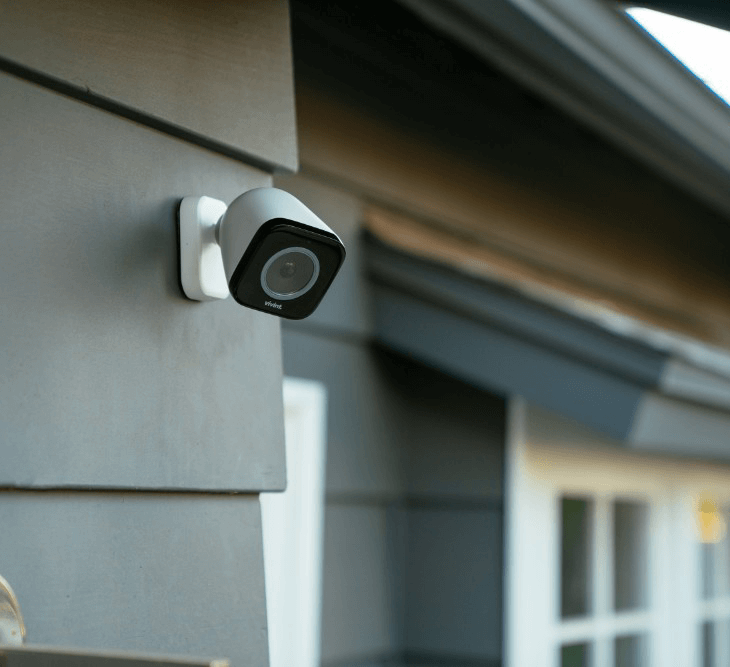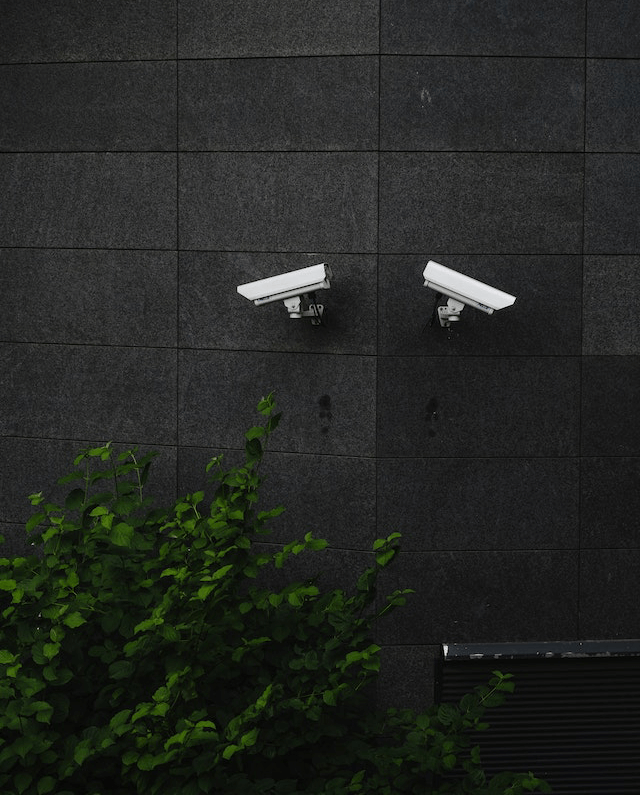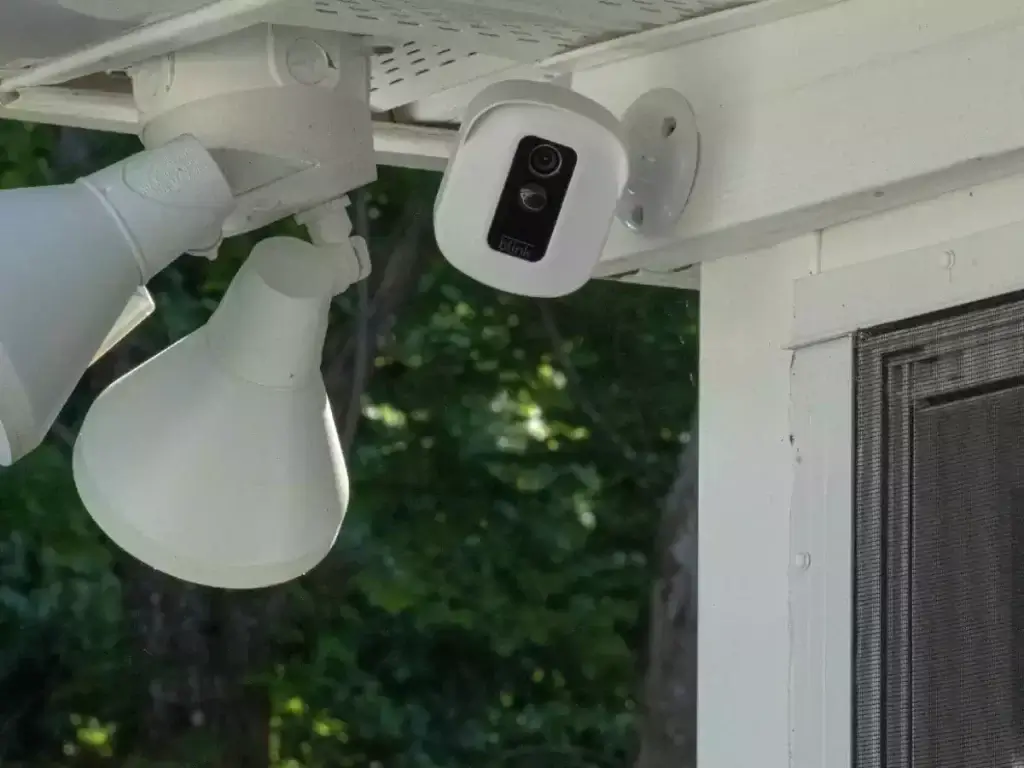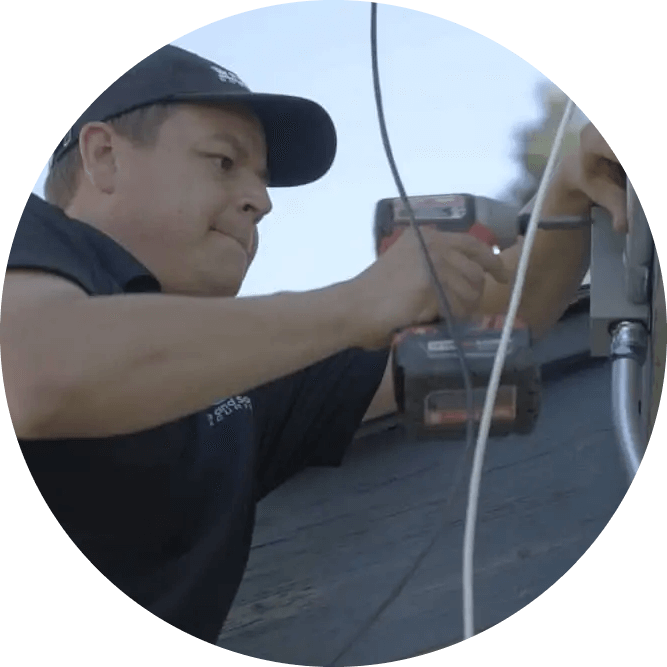CCTV Security System in Singapore
SecureTech is a well-established CCTV service provider in Singapore. Established a decade ago, we specialise in security systems such as Close Circuit Television (CCTV), Data Communications, Security Systems, Phone Systems, Alarm Systems, Door Access, Time Attendance and many more.
We undertake turn-key projects for condominiums, factories, commercial buildings, as well as residential homes such as HDBs, Condominiums and landed properties.




About Us
We provide a complete security management system for commercial, high-tech, industrial, financial, educational, transportation, telecommunications, and government agencies, from small businesses to large multi-site enterprises. We have an extensive network of partners around the world. Together with these companies, we offer a wide range of products and solutions for businesses that can seamlessly deploy new security systems or integrate with their existing security infrastructure.


10 +
Years Of Experience


500
Customers Served


18
Industries Served


100 %
Client Satisfaction
Our Vision
To be a trusted partner in security solutions for video surveillance and access control solutions in Singapore.


Our Mission
To listen and understand our customers’ needs and requirements, to customize the best and cost-effective security solution.
Our Principals::
- To provide excellence customer service through listening and solving their needs.
- Continue providing training and upgrading for our employees.
- Work closely with suppliers to provide innovative technologies to our customers.
Let’s start a conversation.




FAQ
B2B
There is not really a ‘limit’ or ‘duration’ for the CCTV system. The duration is actually more dependent on your hard disk space. If you have a bigger space storage, you can actually store a longer period of footage in the system.
To give you an example, 4 cameras with 500GB hard disk can support about 3-5 weeks of footage.
There is not really a ‘limit’ or ‘duration’ for the CCTV system. The duration is actually more dependent on your hard disk space. If you have a bigger space storage, you can actually store a longer period of footage in the system.
To give you an example, 4 cameras with 500GB hard disk can support about 3-5 weeks of footage.
Yes, of course! Our CCTV comes with intelligent view and so, when the lights are turned off, our CCTV will automatically adjust and offer you the view in black and white. This will be ideal especially for office or factory CCTV usage.
To give you an example, 4 cameras with 500GB hard disk can support about 3-5 weeks of footage.
Most standard cameras are able to capture footage at 70-80 degree angle coverage. To find out how it actually looks like, do schedule an appointment with our consultant today!
To give you an example, 4 cameras with 500GB hard disk can support about 3-5 weeks of footage.
Yes you can! No problem at all! We can even assist you with the setting up on your mobile device. Simply let your sales consultant know so that he or she can assist with the setting up.
To give you an example, 4 cameras with 500GB hard disk can support about 3-5 weeks of footage.
CCTV is referring to Closed Circuit Television, camera(s) is/are connected to a recorder & monitor.
CCTV cameras are used to monitor and view areas to ensure safe and secure.
To protect your business, home or any other private property. With a CCTV installed at you premises you will be able to help ensure your employee and customer safety, maintain security around any stock, protect your property.
NVR is referring to Network Video Recorder, an IP cameras recording device. An NVR offers that same functionality as a DVR, as it records CCTV camera footage, but it is tailored for IP CCTV cameras.
IP cameras are the latest technology in CCTV cameras and can achieve higher resolution than standard HD CCTV cameras. They transmit digital signals so can directly connect to switches on the local network. As these can connect directly to switches you can actually run an IP CCTV system over an existing computer network.
Yes, camera got motion sensor inside.
PTZ stands for Pan, Tilt, Zoom. A PTZ camera can be remotely controlled allowing it to move up and down as well as zoom in on potentially important targets. You can also program a tour between pre-set points. In theory PTZ cameras sound great, they can cover large areas and even zoom in when more detail is required.
All of our cameras, with the exception of several covert use cameras are wired style. Wireless cameras are NOT recommended for any permanent security camera installation for home or business. Wireless cameras have several flaws which make them a poor choice for any security camera installation: Wireless cameras are not secure, Wireless cameras still require power, Wireless cameras operate on crowded frequency bands, Wireless transmission can be affected by many different electronic devices.
Yes, need to connect DVR/NVR to NAS system for back up the record to cloud.
Yes, most of our security DVRs are Internet enabled. You can view live and recorded video from anywhere through the Internet.
Yes, if the Security DVR system comes with an audio option you can record audio. Most analog cameras do not come with built in audio, so you will probably need a separate audio kit.
Yes, some of our Security DVR systems have that option. With an optional audio module, you can listen to live and recorded audio from anywhere through the Internet.
No, for the camera system before activated. You have to apply an account in software, and we will help you to link up the system to that account. The account is private.
It depends on how big system you need in place. For example, a 4 cameras system at HDB we need less than 4 hours. A 16 cameras system at office at same level we will need 8 hours.
B2C
Most customers thought that installing CCTV is just installing a pair of ‘eyes’. However, there are definitely differences in the specifications. Some CCTV cameras comes with 0.5 megapixels or 1.0 megapixels but some higher range CCTV can go up to 2.0 megapixels.
Some CCTV only display standard DVD quality however, the higher range CCTV is able to display HD quality (bluray quality).
To give you an example, 4 cameras with 500GB hard disk can support about 3-5 weeks of footage.
Ethernet network cables consist of several twisted pairs inside the outer jacket. On some networks power can be transferred through one set of pairs to power devices, this is called PoE (Power over Ethernet). The IP Cameras utilizes PoE so that only one cable needs to be run, saving both time and effort.
To give you an example, 4 cameras with 500GB hard disk can support about 3-5 weeks of footage.
Camera maximum power is 3w, one camera power consumption for 1 month is 2.16Kw·H. For a standard 4 cameras system, the maximum power consumption for 1 month is 8.64Kw·H.
With the majority of our cameras there will be some visible red LED’s visible at night. This red light is the infrared light that allows the cameras to see in the dark.
Currently most of camera standard is higher than IP66, allowed to install at outside. But we still recommend you install the bullet camera outside because this kind of camera waterproof performance is more reliable.
This depends on the number of cameras recording at the same time and the level of quality/detail they record at. This will also depend on how big your hard drive is. If you require us to spec up a system to record for a certain amount of time please contact our support team. With our recorders you can also save recording space by only recording when motion is detected.
Your DVR/NVR will overwrite the old data when the hard drive is full. This means the recorder will continuously record the latest footage.
Most Internet-enabled Security DVR systems allow multiple users to view the same site simultaneously. However, as more people look at the same cameras/DVR at the same time, the bandwidth will be shared between them.
This will depend on the size and layout of the area you wish to survey. On average, we recommend one camera per 1000 Sq. Ft.
Yes, but you need a special camera called a Pan-Tilt-Zoom or PTZ camera. Browse our selection of PTZ cameras and find the one that is right for you.
Most Security DVRs will come back on as soon as power is restored. However, we suggest an uninterruptable power supply (UPS) which provides a short period of backup power and also serves as a surge protection device.
Yes, some Security DVRs have that option.
WHAT IS THE MAXIMUM POSSIBLE DISTANCE BETWEEN A CAMERA AND A DVR/NVR UNIT?
✦ IP CCTV system : 100m ✦ HD CCTV system: 200m ✦ This is dependent on good quality cables, older cables may reduce the range of the signal.
Yes, but you have to got a permission from related organization. For the normal building and condo, you have to apply with management office and for HDB you have to apply from town council.
✦ If you have any further questions, please feel free to contact us at:
✦ Tel: 6743 7666 / 6741 2686
✦ Sales/Tech Support: sales@firstsolution.com.sg
1.Clean camera lenses
Check your outdoor and indoor camera lenses to ensure they are always clean. Look for smudges, dust, water-spots and other undesirable elements. Your camera won’t get clear shots if your lenses are smudged or dirty.
2.Trim the landscaping
Check all your outdoors camera view to make sure that all provide a clear view. Keep bushes, vines, trees and other plants near the cameras trimmed to prevent them from obstructing the camera.
3.Check the camera’s housing
The camera’s enclosures should remain water proof and you can check this by opening your security cameras’ housing to check for signs of water, dirt and condensation. This way, you will know whether the enclosures are still protecting the cameras from rain and wind.
Check for corrosion
Check out all connectors for signs of corrosion. If you found any corroded one, replace it immediately since it can cause the rest of the equipment to short out.
5.Ensure that all cables are connected securely
Check all cable connectors, including those connecting the monitor, DVR and security cameras to ensure that they are all receiving power. Also check the cabling for any signs of wear and tear, replace any exposed wire immediately.
6.Check the power supply
Check the power supplies to your home video security systems to ensure that there is no loss of power due to storms, tampering, brownouts or other unwanted events. Check your UPS to ensure the battery are fully charged and don’t show any warning lights. You may also want to check that your surveilance cameras are receiving their recommended power requirements using a voltmeter. Otherwise, the camera may fail rapidly and it is always cheaper to replace the power supply than buy a new security camera.
7.Dust your DVR
The DVR may collect a layer of dust over time, and this must be wiped of regularly to prevent it from affecting the DVR’s performance. Use a microfiber cloth to wipe your DVR or use a blower to dust the crevices.
8.Emptying the hard drive
A large hard drive is needed to record and store a lot of data, but even one as big as 1 Terabyte will only store about 3 weeks of full motion video from a single camera. This means that you have to periodically back up and delete the video once the hard drive fills up.
9.Verify the recording function at least once per week
Have a reminder to check on the camera system recording ability each week. It is always important to find out if there is something wrong with the system before a major security incident actually occurs, only for you to find that you have to useable footage of the incident.
10.Periodically review camera position set ups
This should be done to ensure optimum location and camera focus. You may include an extra camera to capture “fill the frame” images of potential suspects as they move about your home in addition to the ones that cover the whole scene.
11.Check the lighting
Ensure that important areas have enough lighting to illuminate suspects for easy identification. You may have to install an additional camera to capture fill-the frame images of suspects as they move about the home in addition to those that cover the whole scene.
12.Check and remove any banners, posters etc. that obstruct the camera’s view
The camera’s line of sight should remain unobstructed, and obstruction typically happens when banners or posters are placed in front of hidden camera locations by other individuals.
13.Set the correct date and time
On a daily basis check to ensure that the correct date and time are generated by the DVR and displayed on the monitor. Brief power outages may make it necessary for the time and date to be set.
14.Post signage
Making a small investment in professional signage can help mitigate risks by confirming that you are in fact using video surveillance around your premises. Visible signage is the first lie of deterrence and helps enforce your property boundaries.
15.Secure a comprehensive maintenance coverage that includes inspection, cleanings and extended warranty coverage by professionals
A number of service level agreements to maintain your home video surveillance system are available and they may include loaner gear, emergency response, and instant availability of replacement parts.
Maintaining your home or business premises takes time, but keeping it from would-be criminals is an even bigger challenge. Your video surveillance cameras need regular maintenance to ensure a clear picture, uninterrupted feed and wholesome coverage of key areas. It is important to create a CCTV maintenance checklist for yourself so that you don’t miss out the CCTV maintenance as it is just as important as the safety of CCTV installation.
